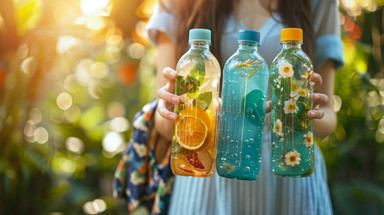Insulated water bottles have become a staple in the lives of environmentally conscious consumers. These bottles are not just convenient for keeping beverages at the desired temperature; they also play a significant role in promoting sustainability and reducing environmental impact. Here’s a detailed look at how insulated water bottles contribute to a greener planet.
1. Reduction of Single-Use Plastics
One of the most direct ways insulated water bottles contribute to environmental sustainability is by reducing the reliance on single-use plastic bottles. Here’s how:
- Decreasing Plastic Waste: Single-use plastic bottles are a major source of pollution, often ending up in landfills and oceans where they take hundreds of years to decompose. By using insulated water bottles, individuals can significantly cut down on the amount of plastic waste they generate.
- Less Energy and Resources: Producing plastic bottles requires substantial amounts of fossil fuels and water. The production and transportation of these bottles also contribute to carbon emissions. Insulated water bottles, which are reusable, help mitigate this by lowering the demand for new plastic bottles.
2. Energy Efficiency
Insulated water bottles are designed to maintain the temperature of liquids for extended periods. This feature contributes to energy efficiency in several ways:
- Less Need for Cooling and Heating: Users can enjoy cold water or hot coffee for hours without needing to use additional energy to reheat or refrigerate their beverages. This reduces the overall energy consumption of households and offices.
- Efficient Manufacturing Processes: High-quality insulated bottles are often made with durable materials like stainless steel, which, although energy-intensive to produce initially, last much longer than plastic bottles. The long lifespan of these bottles means fewer resources are consumed over time.
3. Encouragement of Sustainable Practices
The use of insulated water bottles often goes hand-in-hand with other sustainable habits:
- Mindful Consumption: Carrying a reusable water bottle encourages individuals to think about their consumption patterns. It promotes the idea of reusability over disposability, leading to more environmentally friendly choices in other areas of life.
- Promotion of Tap Water: Many insulated bottle users prefer filling their bottles with tap water, which is generally much more eco-friendly than bottled water. This reduces the demand for bottled water and the environmental costs associated with its production and transportation.
4. Economic Benefits
While the primary focus is often on environmental benefits, the economic advantages of insulated water bottles also play a crucial role in their contribution to a greener planet:
- Cost Savings: Over time, using a reusable bottle is much cheaper than continually purchasing single-use bottles. This economic benefit encourages more people to switch to reusable options, amplifying the positive environmental impact.
- Supporting Sustainable Businesses: Many companies that produce insulated water bottles are committed to sustainable practices. By supporting these businesses, consumers can contribute to the growth of the green economy.
5. Reduction of Carbon Footprint
The overall carbon footprint associated with insulated water bottles is generally lower compared to single-use bottles:
- Longevity and Durability: High-quality insulated bottles can last for many years, reducing the need for frequent replacements and thus lowering the carbon footprint associated with manufacturing and transportation.
- Reduced Shipping and Transportation Emissions: The logistics of distributing bottled water involve significant emissions. Insulated water bottles, which can be refilled countless times, eliminate the need for continuous transportation of bottled water.
6. Innovative Materials and Technologies
The production of insulated water bottles has also seen advancements in materials and technologies that further enhance their environmental benefits:
- Eco-friendly Materials: Some insulated bottles are now made from recycled materials or are designed to be fully recyclable at the end of their life cycle. This reduces the overall environmental impact.
- Advanced Insulation Technologies: Innovations in insulation technology mean that these bottles are becoming more efficient, requiring less material while providing better performance.
Conclusion
Insulated water bottles are more than just a convenient way to keep beverages at the perfect temperature. They represent a shift towards more sustainable living, encouraging the reduction of single-use plastics, promoting energy efficiency, and supporting eco-friendly practices. By choosing insulated water bottles, consumers can make a significant contribution to the health of our planet, one sip at a time.



